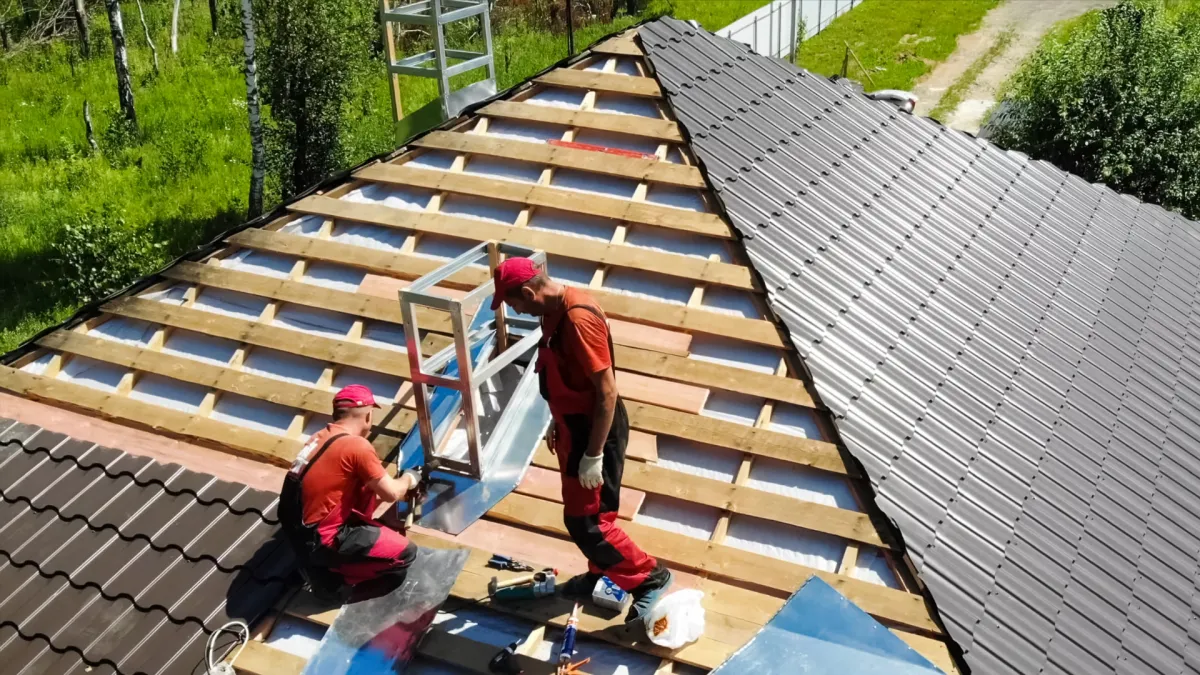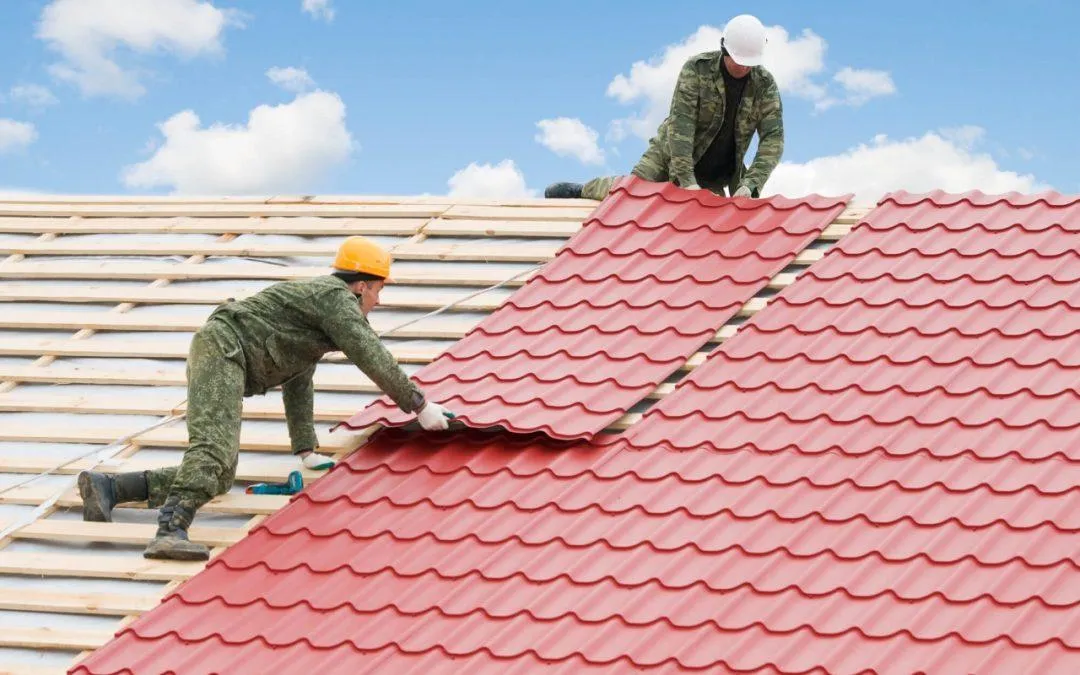B&C Quality General Contractors
YOUR TRUSTED PARTNER FOR TOP-QUALITY ROOFING AND REMODELING SERVICES.

B&C Quality General Contractors
YOUR TRUSTED PARTNER FOR ROOFING AND REMOLDING EXCELLENCE.


WHO WE ARE?
Your Go-To Choice for Quality Roofing Solutions
B&C Quality General Contractors is your top choice for residential and commercial roofing services. We prioritize quality craftsmanship and customer satisfaction to deliver exceptional results. Count on our expert team for tailored roofing solutions that enhance the safety and aesthetics of your property.


WHO WE ARE?
Your Go-To Choice for Quality Roofing Solutions
B&C Quality General Contractors is your top choice for residential and commercial roofing services. We prioritize quality craftsmanship and customer satisfaction to deliver exceptional results. Count on our expert team for tailored roofing solutions that enhance the safety and aesthetics of your property.

Improving Every Corner of Your Home
At B&C Quality General Contractors, we're more than just roofing experts. With decades of experience, our dedicated team specializes in all aspects of home improvement, from remodeling to maintenance. Whether you need a kitchen renovation, landscaping overhaul, or essential repairs, we're here to ensure every corner of your home reflects top-notch craftsmanship and unbeatable value. Trust B&C to enhance your living experience and provide peace of mind to homeowners like you.
⦿ ROOFING INSTALLATIONS
⦿ KITCHEN RENOVATIONS
⦿ LANDSCAPE TRANSFORMATIONS
⦿ HOME REPAIRS
Improving Every Corner of Your Home
At B&C Quality General Contractors, we're more than just roofing experts. With decades of experience, our dedicated team specializes in all aspects of home improvement, from remodeling to maintenance. Whether you need a kitchen renovation, landscaping overhaul, or essential repairs, we're here to ensure every corner of your home reflects top-notch craftsmanship and unbeatable value. Trust B&C to enhance your living experience and provide peace of mind to homeowners like you.
⦿ ROOFING INSTALLATIONS
⦿ KITCHEN RENOVATIONS
⦿ LANDSCAPE TRANSFORMATIONS
⦿ HOME REPAIRS
Transformative
Craftsmanship for Your Spaces
At B&C Quality General Contractors, craftsmanship isn't just a job—it's our passion. We pour our hearts into every project, focusing on the smallest details to ensure top-notch quality. Whether we're installing roofs or revamping spaces, we're dedicated to bringing your vision to life with skill and care. Let us be your partner in transforming your home, creating spaces that reflect your style and bring you joy every day.
At B&C Quality General Contractors, craftsmanship isn't just a job—it's our passion. We pour our hearts into every project, focusing on the smallest details to ensure top-notch quality. Whether we're installing roofs or revamping spaces, we're dedicated to bringing your vision to life with skill and care. Let us be your partner in transforming your home, creating spaces that reflect your style and bring you joy every day.
Transformative Craftsmanship for Your Spaces
From Roof to Basement, We've Got You Covered
With decades of industry expertise, the devoted team at B&C Quality General Contractors brings unparalleled skill to each residential roofing project we handle. From installations to repairs and maintenance, we ensure your residential roof is fortified against the elements. At B&C, we're not just about roofing; we're dedicated to delivering peace of mind and exceptional value to homeowners like you.
From Roof to Basement, We've Got You Covered
With decades of industry experience, the passionate team at B&C Quality General Contractors brings unmatched expertise to every residential roofing project. Whether it's installing, repairing, or maintaining your roof, we're here to fortify your home against the elements. But at B&C, it's not just about roofing; it's about bringing peace of mind and incredible value to homeowners like you.
How we work
Get your living space
fixed the right way
Revitalize Your Living Space: Streamlined Process,
Expert Home Repair Solutions Await!
Stay Informed with B&C
Expert Advice, Maintenance Tips, and the Latest in Roofing Innovations

How to Choose a Reliable Roofing Contractor and the Benefits of Energy-Efficient Roofing
E F F E C T I V E H O M E S O L U T I O N S
When it comes to maintaining or upgrading your home, selecting the right roofing contractor is crucial. Your roof is your home’s first line of defense against the elements, and hiring a reliable professional ensures that the job is done correctly and efficiently. Here’s a comprehensive guide to help you choose a trustworthy roofing contractor, incorporating essential SEO keywords to boost your blog’s visibility.

Begin your search by looking for local roofing contractors. Proximity matters because local contractors are familiar with regional weather conditions and building codes. Use online directories, review sites, and social media to gather a list of potential candidates. Pay attention to customer reviews and ratings to gauge their reputation.
Where to Find Local Roofing Contractors?
Online Directories: Websites like Yelp, Angie’s List, and HomeAdvisor provide extensive lists of local contractors along with reviews and ratings. These platforms allow you to filter your search based on location, services offered, and customer feedback.
Review Sites: Sites such as Google Reviews and Better Business Bureau (BBB) offer insights into the reputation and reliability of local contractors. Look for overall ratings and the number of reviews to gauge consistency in quality and customer satisfaction.
Social Media: Platforms like Facebook and Nextdoor can be valuable resources for finding local roofing contractors. Many businesses maintain profiles where they share updates, customer reviews, and examples of their work. Community groups on these platforms can also provide recommendations.

Ensuring that the roofing contractor you choose is both licensed and insured is a critical step in the selection process. Licensing proves that the contractor meets the necessary qualifications and standards set by state and local governments. It ensures that they have the required knowledge and skills to perform roofing work safely and correctly. Insurance, on the other hand, protects you from liability in case of accidents or damage during the project. Here's a detailed checklist to help you verify the credentials of your potential roofing contractor:
Checklist:
1. Ask for the Contractor’s License Number
Verification: Once you have the license number, verify it with local authorities or through an online licensing board. This step ensures that the license is current and valid.
Details: Check if the license has any unresolved complaints or disciplinary actions. A clean record is a good indicator of a reliable contractor.
2. Request Proof of Liability Insurance
Coverage: Liability insurance protects your property in case of accidental damage caused by the contractor or their team. Without it, you could be financially responsible for repairs.
Verification: Ask for a copy of their insurance certificate and confirm its validity by contacting the insurance provider. Ensure the coverage is adequate for the scope of your project.
3. Workers’ Compensation Insurance
Protection: Workers' compensation insurance covers medical expenses and lost wages for workers injured on the job. This is crucial to protect yourself from potential lawsuits or claims.
Verification: Similar to liability insurance, request proof of workers' compensation insurance and verify it with the insurance company. Confirm that it covers all workers who will be involved in your project.
4. Bonding
Security: While not always required, a bonded contractor provides an extra layer of security. A bond ensures that if the contractor fails to complete the job or meet contractual obligations, you are financially protected.
Types of Bonds: Performance bonds cover the completion of the project according to the contract, while payment bonds ensure that subcontractors and suppliers are paid.
5. Check for Additional Certifications and Memberships
Professional Organizations: Membership in professional organizations like the National Roofing Contractors Association (NRCA) or local business associations can indicate a commitment to industry standards and continuing education.
Manufacturer Certifications: Some contractors may have certifications from roofing material manufacturers. These certifications can provide extended warranties and assurance of specialized training.

Obtain at least three written estimates from different contractors. This will give you a better understanding of the market rate and help you identify any unusually high or low bids. Be wary of contractors who offer significantly lower prices; they might be cutting corners or using substandard materials.
Consideration:
While comparing quotes, consider the scope of work, materials used, and the estimated timeline. A detailed estimate should include all these factors.

Experience matters in roofing. Inquire about the contractor’s experience with the specific type of roofing material you have or plan to install. An experienced roofing professional will be able to provide examples of past projects and may even offer a tour of recent worksites.
Questions to Ask:
▶ How many years have you been in business?
▶ Have you handled similar projects?
▶ Can you provide references from past clients?

Effective communication is key to a successful roofing project. From the initial consultation to the final inspection, clear and open communication ensures that both you and the contractor are on the same page. This reduces the likelihood of misunderstandings, keeps the project on track, and helps build a strong working relationship. A contractor who communicates well not only demonstrates their professionalism but also shows respect for your time and investment. This open line of communication allows for timely updates, quick resolution of issues, and a smooth workflow that aligns with your expectations. Here are some aspects to consider when evaluating a contractor's communication and customer service skills
Red Flags:
▶ Delayed responses or lack of communication
▶ Vague or evasive answers to your questions
▶ Reluctance to provide written agreements

A reliable roofing contractor should offer warranties for both materials and workmanship. Manufacturer warranties typically cover materials, while the contractor should provide a guarantee for their labor.
Details to Confirm:
▶ Duration of the material and labor warranties
▶ What is covered under each warranty
▶ Procedures for making warranty claims

Before signing any agreement, it is crucial to review the contract thoroughly. A well-drafted contract serves as a legal document that outlines the expectations and responsibilities of both parties, ensuring that the project proceeds smoothly and that you are protected in case of any disputes. Here are detailed elements to look for in your roofing contract:
Important Elements:
1. Detailed Description of the Project
Scope of Work: The contract should clearly outline the scope of work to be completed. This includes specific tasks such as removal of the old roof, installation of the new roofing materials, and any additional services like gutter installation or attic insulation.
Materials: Specify the types of materials to be used, including the brand, model, color, and any other relevant specifications. This ensures that there are no substitutions without your approval.
Workmanship Standards: Include details about the expected quality of workmanship, adherence to industry standards, and compliance with local building codes.
2. Payment Terms and Schedule
Total Cost: The contract should state the total cost of the project, including labor, materials, permits, and any other expenses.
Payment Schedule: Outline the payment schedule, including any upfront deposit, progress payments, and the final payment upon completion. Be wary of contractors who demand large upfront payments.
Payment Methods: Specify acceptable payment methods (e.g., check, credit card, bank transfer) and any applicable fees for different payment options.
3. Timeline and Start/Completion Dates
Start Date: Clearly indicate the expected start date of the project. This helps ensure the contractor’s availability and commitment to your project.
Completion Date: Specify the anticipated completion date. This holds the contractor accountable for timely execution of the work.
Work Hours: Include details about the work hours and days of the week when the contractor will be on-site. This helps manage your expectations and minimizes disruptions.
4. Clauses for Handling Unforeseen Issues or Changes
Change Orders: Define the process for handling any changes to the original scope of work. This should include how change orders will be documented, approved, and billed.
Unforeseen Issues: Address how unforeseen issues, such as hidden structural damage or unexpected weather delays, will be managed. Specify who will be responsible for additional costs and how they will be communicated.
Penalties for Delays: Include clauses that outline penalties for unreasonable delays caused by the contractor. This provides motivation for the contractor to complete the project on time.

Once the project begins, stay engaged. Regularly check the progress and ensure that the work aligns with the agreed-upon terms. Address any concerns immediately with the contractor to avoid misunderstandings.
Proactive Steps:
▶ Schedule regular site visits
▶ Keep a project diary with notes and photos
▶ Communicate openly with the contractor and crew
While choosing a reliable roofing contractor is crucial, it’s also important to consider the type of roofing material you will use. Energy-efficient roofing options can significantly reduce your utility bills and increase your home's comfort. Here’s why you should consider energy-efficient roofing:
i. Cost Savings
Energy-efficient roofs reflect more sunlight and absorb less heat than standard roofs, which can lower cooling costs by up to 15%. This can lead to significant savings on your energy bills, especially during hot summer months.
ii. Environmental Impact
Choosing eco-friendly roofing materials helps reduce your carbon footprint. Materials like metal, slate, and cool roofs made from reflective coatings can decrease your home’s overall energy consumption.
iii. Increased Comfort
Energy-efficient roofs provide better insulation for your home, keeping it cooler in the summer and warmer in the winter. This creates a more comfortable living environment year-round.
iv. Enhanced Durability
Many energy-efficient roofing materials are also more durable and have a longer lifespan than traditional roofing options. This means fewer repairs and replacements over the years, further adding to your cost savings.
Conclusion
Choosing the right roofing contractor requires diligence and careful consideration. By following these steps, you can ensure that your roofing project is handled by a skilled professional, leading to a successful and stress-free experience. A reliable contractor not only guarantees quality workmanship but also provides peace of mind, knowing that your home is protected by a durable and well-installed roof.
In addition to selecting the right contractor, considering energy-efficient roofing options can provide long-term benefits for both your wallet and the environment. Energy-efficient roofs help reduce energy consumption, leading to lower utility bills and a smaller carbon footprint. These roofs often feature reflective materials that minimize heat absorption, keeping your home cooler in the summer and warmer in the winter, thus enhancing overall comfort.
Moreover, many energy-efficient roofing materials are designed to be more durable than traditional options. This increased durability means fewer repairs and replacements over the lifespan of the roof, which translates to additional cost savings. By investing in eco-friendly roofing solutions, you are contributing to a sustainable future while also improving the resilience and value of your home.
In summary, the combination of a trustworthy roofing contractor and energy-efficient roofing materials can lead to a more secure, comfortable, and cost-effective home. Take the time to research and vet potential contractors thoroughly, and don't hesitate to ask about their experience with energy-efficient roofing. The extra effort will pay off in the form of a well-executed roofing project that meets your needs and supports environmental sustainability.
By integrating these considerations into your decision-making process, you can achieve a successful roofing project that not only protects your home but also enhances its energy efficiency and overall value. Remember, a well-informed choice today can lead to significant benefits for years to come.
How we work
Get your living space
fixed the right way
Revitalize Your Living Space: Streamlined Process, Expert Home Repair Solutions Await!
WHO WE ARE
Empowering Dreams: Unveiling Our Identity
We are more than a company; we are architects of inspiration, champions of aspirations, and facilitators of dreams. Rooted in the belief that every dream holds the potential for greatness, we have sculpted our identity around the mission of empowerment.

51K
Project Done
4K+
Happy Client
94%
Rate Project Done
4.8
Client Ratings
Why Choose Us?

Passion for
Excellence
At B&C Quality General Contractors, passion drives everything we do. We're not just in the business of construction; we're in the business of turning dreams into reality. Our team is deeply passionate about creating beautiful spaces that our clients will love for years to come.

Commitment to
Quality
Quality is at the core of our values at B&C Quality General Contractors. From the materials we use to the craftsmanship we deliver, we never compromise on quality. Our commitment to excellence ensures that every project is completed to the highest standards.

Personalized
Service
At B&C Quality General Contractors, we understand that every client is unique, and we treat each project with the individualized attention it deserves. From the initial consultation to the final walkthrough, our team works closely with clients to understand their vision.
FAQS
Here's What Our Clients have to Say
Client Testimonials
Let's Connect
Secure Your
Appointment Date
Our Projects
Experience Our
Diverse Projects

